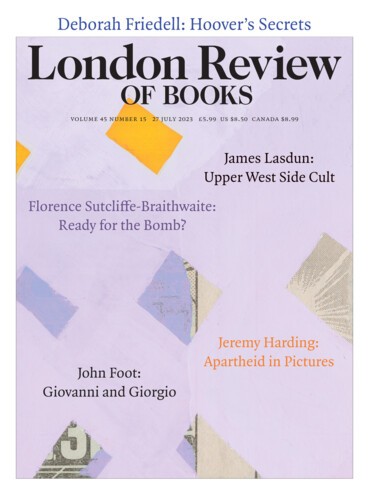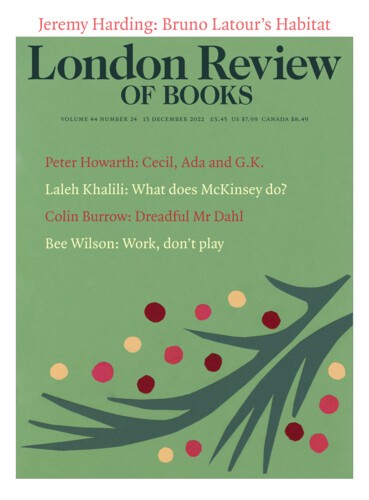Zombie v. Zombie: Pan-Africanist Inflections
Jeremy Harding, 4 January 2024
In the past three years there have been seven military coups in former French colonies, all in West or Central Africa. Two coups in Mali, in 2020 and 2021, saw a president and then an interim president deposed. Assimi Goïta, a colonel in his early forties, is now running the country. In Guinea, Alpha Condé, a president in his eighties, was removed by the military in September...





